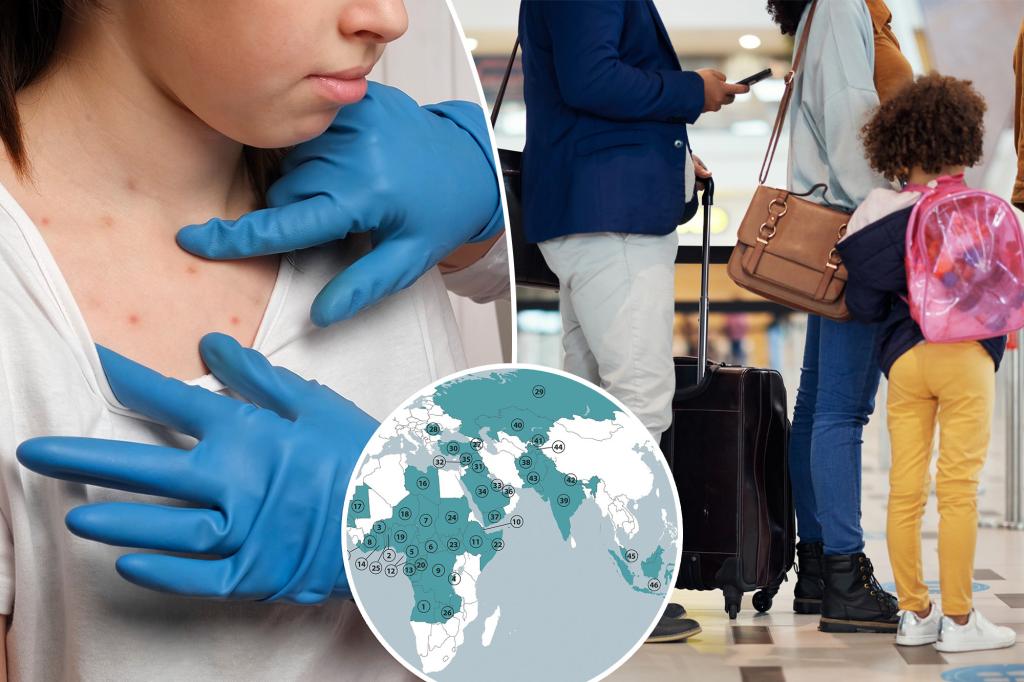The Centers for Disease Control and Prevention has tightened its guidance for American travelers due to large measles outbreaks in 46 countries. The agency is warning that many international destinations are reporting increased numbers of measles cases and is recommending that travelers consult their physicians six weeks before travel instead of the previously recommended one month prior. Travelers who do not get a measles-mumps-rubella vaccination at least two weeks before their trip are at risk of infection, as the majority of measles cases imported into the United States occur in unvaccinated US residents who become infected during international travel.
According to the CDC, the countries with the most worrisome outbreaks of measles are primarily located in Africa, Asia, the Middle East, and Eastern Europe. The virus can stay airborne or on a surface for up to two hours, making it highly contagious. Russia and Malaysia are recent additions to the list of countries experiencing measles outbreaks. In the United States, there has been an uptick in measles cases over the winter, with 58 cases reported as of March 14, which is the same number of cases reported for the entire year of 2023. These cases have been reported in 17 different areas across the country, including New York City, Arizona, California, Florida, Georgia, and others.
Measles symptoms include a rash, high fever, cough, runny nose, and watery red eyes. It is important for travelers to take necessary precautions, such as getting vaccinated, before traveling to areas where measles outbreaks have been reported. The CDC’s tightening of guidance for American travelers underscores the importance of vaccination and consulting with a physician well in advance of international travel. With measles being a highly contagious virus that can have serious health consequences, including pneumonia, encephalitis, and death, it is crucial for travelers to take preventive measures to protect themselves and others.
The CDC’s recommendation for American travelers to consult their physicians six weeks before travel aims to ensure that travelers have enough time to get vaccinated and boost their immunity against measles. The agency’s warning about the increased number of cases of measles in international destinations serves as a reminder of the importance of vaccination in preventing the spread of the virus. Measles is a highly contagious disease that can easily be transmitted through respiratory droplets, making vaccination essential for travelers going to regions with large outbreaks. By taking proactive measures, travelers can protect themselves and others from contracting and spreading measles.
The global nature of travel makes it vital for travelers to be aware of potential health risks in the countries they plan to visit. With many countries around the world experiencing measles outbreaks, travelers should be vigilant about getting vaccinated and taking necessary precautions to prevent infection. The CDC’s updated guidance for American travelers reflects the ongoing efforts to control the spread of measles and protect public health. By following these recommendations and staying informed about the current situation regarding measles outbreaks, travelers can help mitigate the risk of contracting the virus and contribute to global efforts to eliminate measles as a public health threat.
In conclusion, the recent measles outbreaks in 46 countries have prompted the CDC to issue stricter guidance for American travelers. With the virus being highly contagious and potentially serious, travelers should take proactive measures, such as getting vaccinated and consulting with a physician well in advance of travel. The increasing number of measles cases in the US and globally underscores the importance of vaccination in preventing the spread of the virus. By staying informed about measles outbreaks and following the CDC’s recommendations, travelers can protect themselves and others from this highly contagious disease.















